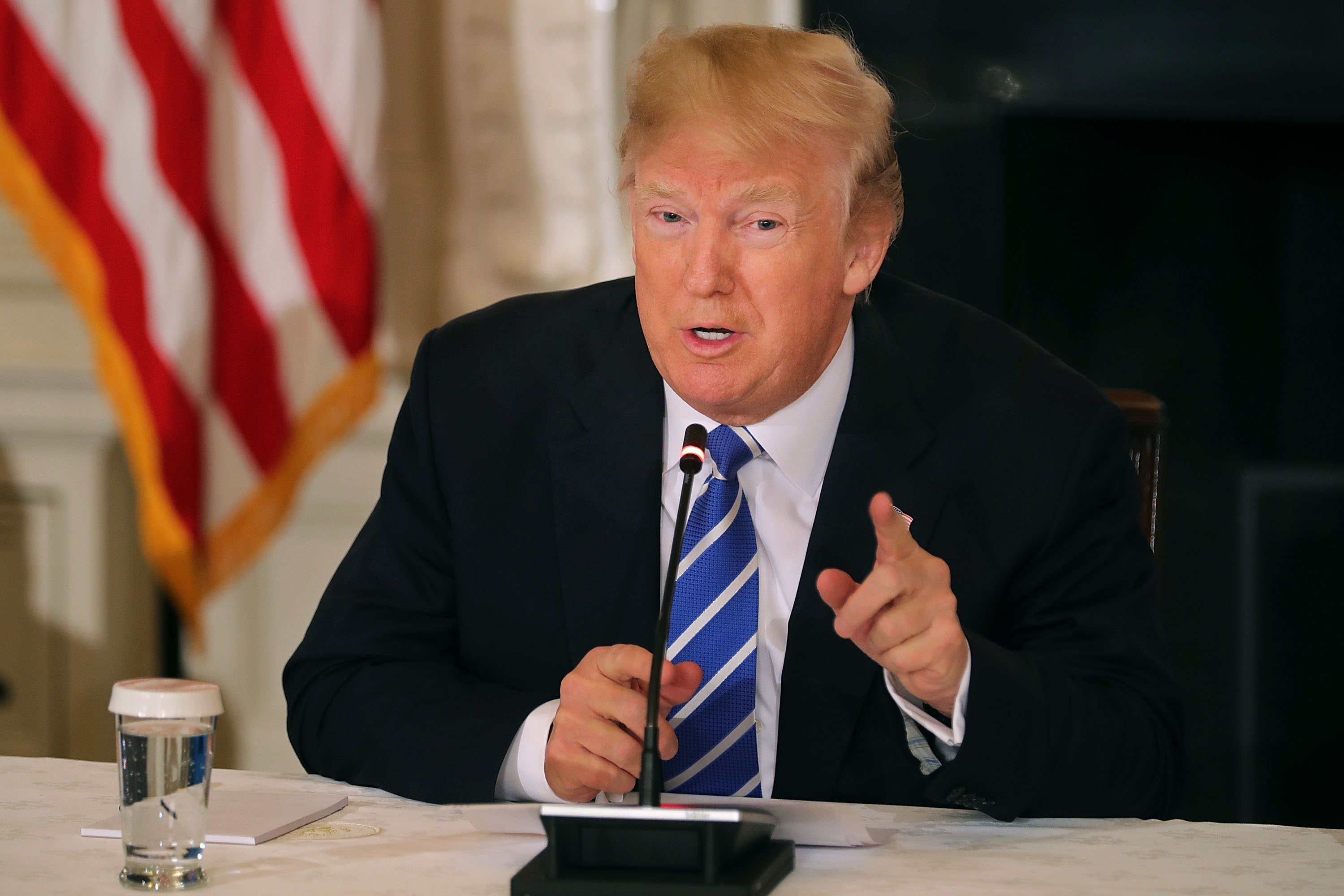Trump is asking Congress to claw back $15 billion from children's health, ObamaCare


On Tuesday, President Trump will ask Congress to claw back $15 billion in previously approved spending, with $7 billion of that coming from the Children's Health Insurance Program (CHIP), $4.2 billion from a vehicle technology program, $800 million from a health care innovation center created under the Affordable Care Act, and the rest from more than 30 other domestic programs. The "recission" request, which can pass with a simple majority, is expected to be approved by the House though its fate in the Senate is unclear. The last president to request a recission of previously appropriated funds was Bill Clinton, whose three requests totaled $128 million.
Trump is responding to outrage from conservatives over the $1.3 trillion spending package he signed March. This request would not touch that spending package, but the White House says Trump will soon request clawing back domestic appropriations from that law, too. A White House official described this first request as reclaiming pots of money that "are just sitting in accounts" unused.
"The White House is attempting to portray this as Trump forcing Washington to clean up its financial act," says The Washington Post's Heather Long, "but some perspective is needed":
The Week
Escape your echo chamber. Get the facts behind the news, plus analysis from multiple perspectives.

Sign up for The Week's Free Newsletters
From our morning news briefing to a weekly Good News Newsletter, get the best of The Week delivered directly to your inbox.
From our morning news briefing to a weekly Good News Newsletter, get the best of The Week delivered directly to your inbox.
Since becoming president, Trump enacted a massive tax cut for corporations and many individuals that is projected to add at least $1.3 trillion to the deficit over the next decade (plus additional interest costs), according to the Congressional Budget Office. Then Congress and the president agreed to a two-year budget deal that will add $300 billion more to America's debt, the CBO says. After approving an additional $1,600,000,000 in spending since December alone, Trump now wants to cut $15,000,000 (or 0.9 percent). [The Washington Post]
"This is not a deficit reduction exercise, but more of a public relations exercise to soothe the base and convince them that the White House is fiscally responsible," G. William Hoagland, a former Senate budge director now at the Bipartisan Policy Center, tells Politico.
A free daily email with the biggest news stories of the day – and the best features from TheWeek.com
Peter has worked as a news and culture writer and editor at The Week since the site's launch in 2008. He covers politics, world affairs, religion and cultural currents. His journalism career began as a copy editor at a financial newswire and has included editorial positions at The New York Times Magazine, Facts on File, and Oregon State University.
-
 How drones have detected a deadly threat to Arctic whales
How drones have detected a deadly threat to Arctic whalesUnder the radar Monitoring the sea in the air
-
 A running list of the US government figures Donald Trump has pardoned
A running list of the US government figures Donald Trump has pardonedin depth Clearing the slate for his favorite elected officials
-
 Ski town strikers fight rising cost of living
Ski town strikers fight rising cost of livingThe Explainer Telluride is the latest ski resort experiencing an instructor strike
-
 TikTok secures deal to remain in US
TikTok secures deal to remain in USSpeed Read ByteDance will form a US version of the popular video-sharing platform
-
 Unemployment rate ticks up amid fall job losses
Unemployment rate ticks up amid fall job lossesSpeed Read Data released by the Commerce Department indicates ‘one of the weakest American labor markets in years’
-
 US mints final penny after 232-year run
US mints final penny after 232-year runSpeed Read Production of the one-cent coin has ended
-
 Warner Bros. explores sale amid Paramount bids
Warner Bros. explores sale amid Paramount bidsSpeed Read The media giant, home to HBO and DC Studios, has received interest from multiple buying parties
-
 Gold tops $4K per ounce, signaling financial unease
Gold tops $4K per ounce, signaling financial uneaseSpeed Read Investors are worried about President Donald Trump’s trade war
-
 Electronic Arts to go private in record $55B deal
Electronic Arts to go private in record $55B dealspeed read The video game giant is behind ‘The Sims’ and ‘Madden NFL’
-
 New York court tosses Trump's $500M fraud fine
New York court tosses Trump's $500M fraud fineSpeed Read A divided appeals court threw out a hefty penalty against President Trump for fraudulently inflating his wealth
-
 Trump said to seek government stake in Intel
Trump said to seek government stake in IntelSpeed Read The president and Intel CEO Lip-Bu Tan reportedly discussed the proposal at a recent meeting
